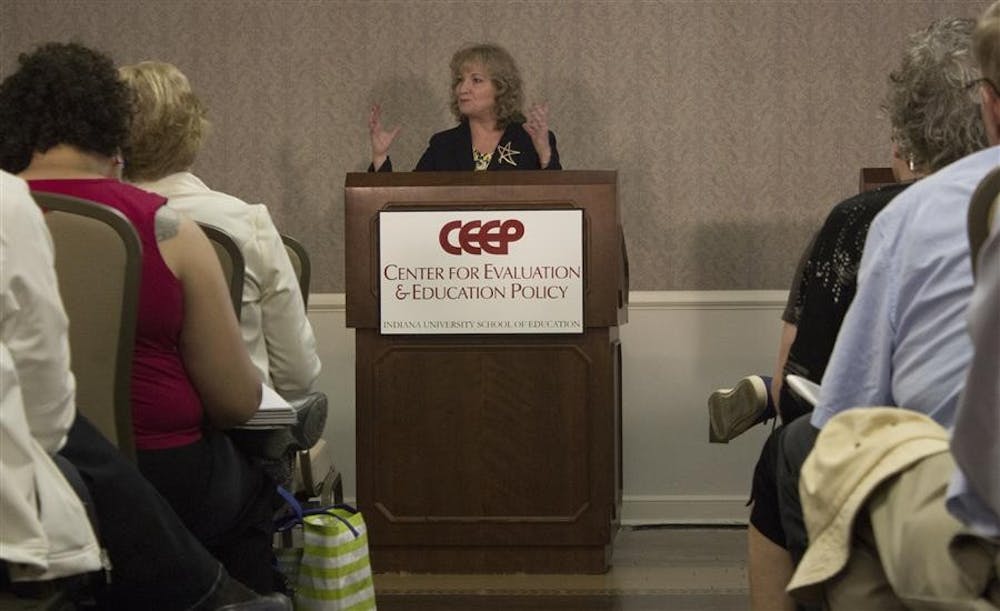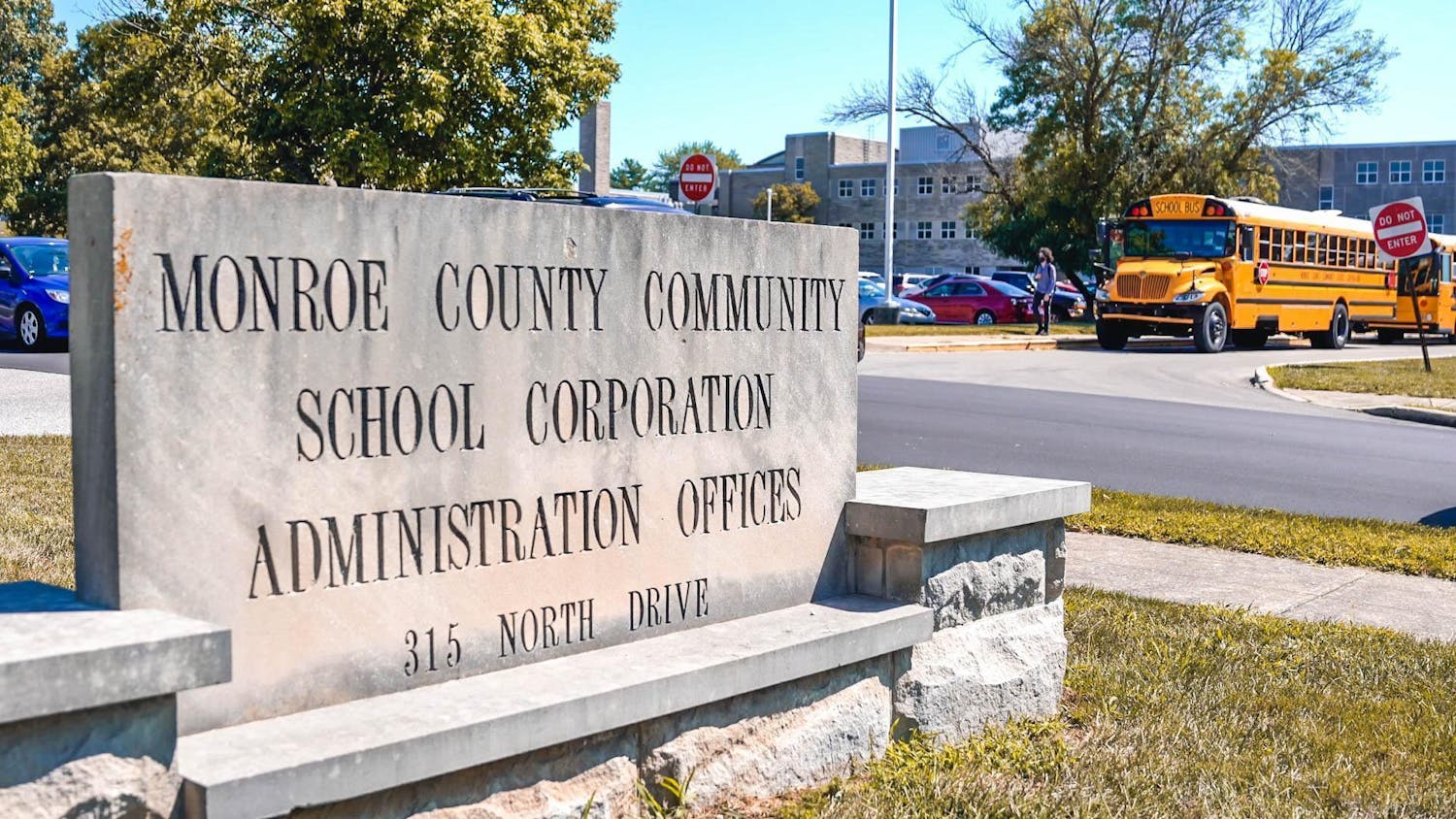Glenda Ritz said she hopes to help build an education system of high quality.
Ritz, Indiana superintendent of public instruction, spoke Monday at the Georgian Room of the Indiana Memorial Union about the state of Indiana’s public education, and what improvements she hopes to make.
Ritz was joined by Jeremy Anderson, president of the Education Commission of the States, for the event, “DOE’s Vision for Public Education in Indiana.”
“I came to the Department of Education with a vision,” Ritz said. “My vision is imagining the possibilities and making them happen.”
Ritz spoke about how she hopes to better Indiana public education and fulfill its mission.
“The mission is building an education system of equity and high quality, based on student-centered accountability,” she said.
Ritz said public education has shortcomings and often focuses on the wrong things.
“Schools have to make goals for attendance, graduation rates and test scores, and we ignore the culture of the school,” she said. “The state has no data on the reading ability of students, the key to determining success in the classroom.”
Ritz also commented on the recent controversy involving the A-F grading system and former Indiana Superintendent of Public Instruction Tony Bennett.
Bennett recently resigned from his job as Florida’s education commissioner after allegations that he changed the grade of a school in Indiana run by a prominent donor came to light.
“I am not a proponent of labeling schools A, B, C, D, F,” she said. “It’s got nothing to do with labeling the schools, but everything to do with labeling the children.”
Ritz argued against standardized tests, specifically the ISTEP test, and said it doesn’t do a good job of assessing students.
“The ISTEP has a third grade bottom and an eighth grade ceiling,” she said. “It’s one test. We don’t know students’ true performance. Teachers can tell who passes the test, which costs $25 million to run, before we give it.”
Ritz also said the education system is test-oriented, which is a weakness of the system.
“We are testing to standards, and teaching to tests,” she said. “I’m tired of teaching to tests; it’s not the right thing to do.”
Ritz said she hopes to focus on accountability in the future.
“It’s all about fair, based-on-growth assessments that have no ceiling,” she said. “We haven’t told our students what the reading proficiency level needed for college and a career is. We need to get them where they need to go.”
Ritz said she hopes to focus on getting students ready for life after school.
“We need flexibility with different pathways for careers,” she said. “Kids need to get serious about building résumés. Whatever you do, it will take post-secondary work. Literacy and math levels for colleges and careers have caught up, and educators and society don’t know this.”
Anderson then spoke about ECS’s national work with schools. He focused on state standards, college readiness and career and technical education.
“In 2006, the U.S. was 25 out of 30 developed countries in math scores,” he said. “In 2009, 46 states called for state standards.”
Anderson said the U.S. is also lagging in college readiness.
“The U.S. is the only country out of the 10 most developed nations with a lower 25-34 age group with a post-secondary degree,” he said.
Anderson said that in order for the U.S. to fulfill the goal set by the Lumina Foundation, a private, Indianapolis-based grant foundation, of 60 percent of the adult population having post-secondary degrees by 2025, a lot of work would have to be done.
“Indiana is above the national average, but you would still need four times the number of graduates than you have now,” he said.
Anderson also said career and technical education is changing in the U.S.
“In Colorado, there are four high schools that fulfill the requirements for an accredited college,” he said. “One, you can go for five years and get an Associate’s degree. There is a different definition of college and career readiness.”
After Ritz and Anderson spoke, the floor was opened for audience questions and topics including the rising cost of college, the role of dual credits and Advanced Placement courses all surfaced.
Peter Miksza, associate professor of music education at the Jacobs School of Music, asked about the role of arts in education, and if Ritz still thought it was important.
“I want to know not only about its importance in school, but also in creating citizens of the world,” Miksza said.
Ritz said she believes arts should be a strong part of a balanced education.
“If a student is really into pottery, we should let them take those classes, but we should also be guiding that student,” she said. “They’re going to be an entrepreneur. We need to teach them marketing, how to create a website, all those things. Indiana has been squelching the arts for some time.”
Ritz said she is focusing on the needs of students and teachers to improve the quality of education.
“Assessment is equated with tests,” she said. “It is so much beyond that.”
Follow education reporter Stephen Kroll on Twitter @stephenkroll1.
Ind. Superintendent Ritz discusses education

Get stories like this in your inbox
Subscribe



